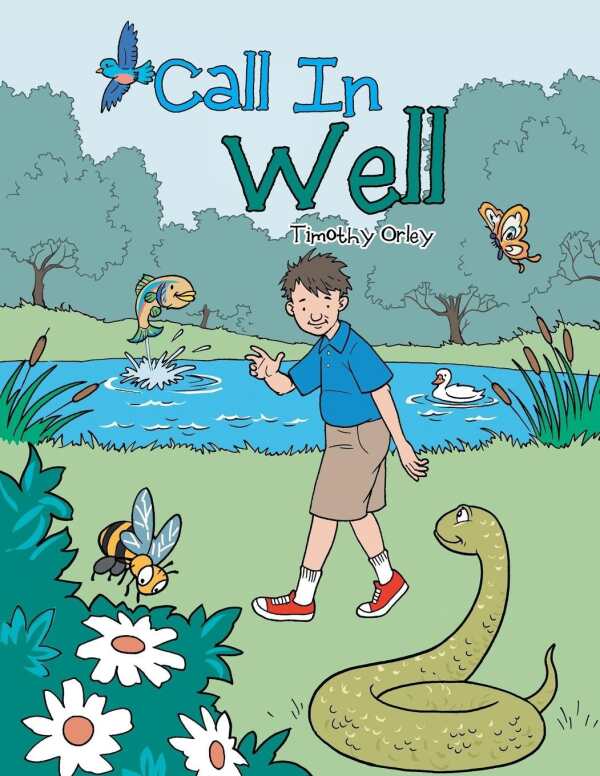Call in Well
The clever children’s poetry collection Call in Well explores its themes through creative and fun-filled lines.
Timothy Orley’s disarming children’s poetry collection Call in Well is accentuated by delightful characters and engaging illustrations.
Variously, the poems in this collection are fun, silly, and meaningful. The combined effect is refreshing and amusing. The first narrative poem, “Big Betty’s Pizza,” is whimsical and funny and features Betty, who wears a blue bonnet and owns a pizza place where a very special pizza comes with everything on it, from mushrooms and candy to sweaty socks and a coat. Alternatively, Jane only serves plain pizza.
In “The Not So Super-Heroes,” a group of friends with unique characteristics gathers; odd traits are a must for joining the group. Lady Late is always late, even to her own birthday, while Captain is unable to sit down, even when he’s riding a bike. The poem praises friendships where imperfections are celebrated and accepted. The funny characters make it even more entertaining.
The many interesting characters are a collection standout. They are comical, unusual, and captivating—like the main character in “Sleep,” who relishes his ability to sleep almost anywhere, even in class, everywhere but through his brother’s snoring.
In addition to more whimsical poems are poems that deliver succinct, valuable lessons, like “Kind,” which is just a few lines long and emphasizes the importance of treating people kindly. In “Call in Well,” the main character misses work to enjoy the sunshine, butterflies, and making new friends, highlighting the value of taking a break.
Unusual notions, as with those in “Dear Santa,” combine with straightforward language for accessibility and entertainment:
A chocolate bed to rest my head might be kind of cool.
And if it isn’t too much trouble, could you please shut down my school?
Santa, I don’t want to ride on buses anymore;
That’s why I’ll need a greenish-purple, pink pet dinosaur.
The poems’ themes are always clear, and their lines are rhythmic. Poems make good use of alliteration, end rhymes, and the repetition of words and phrases, though some end rhymes are invented words played more for humor than anything else, as in “My Very Own Language,” where “Tinker ma slink” means “How do you do?” and pairs with “Dink dink,” or “Hi.”
A few poems run longer than the attention they command. Illustrations are inconsistently incorporated, sometimes coming at the end of poems and sometimes interrupting long poems in a way that gives the false impression that the poems they’ve entered have ended. Still, the illustrations themselves hold attention and clarify the poems’ messages.
The clever children’s poetry collection Call in Well explores its themes through creative and fun-filled lines.
Reviewed by
Edith Wairimu
Disclosure: This article is not an endorsement, but a review. The publisher of this book provided free copies of the book and paid a small fee to have their book reviewed by a professional reviewer. Foreword Reviews and Clarion Reviews make no guarantee that the publisher will receive a positive review. Foreword Magazine, Inc. is disclosing this in accordance with the Federal Trade Commission’s 16 CFR, Part 255.

